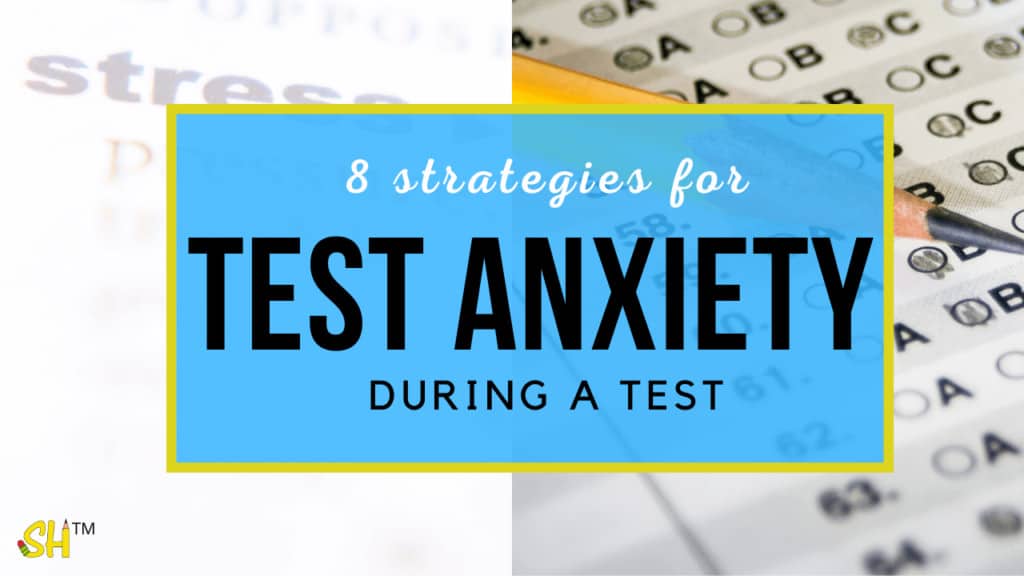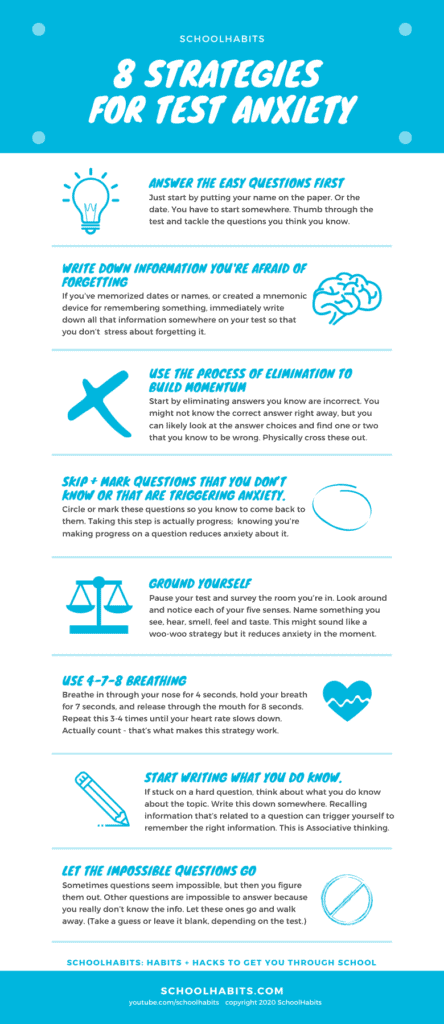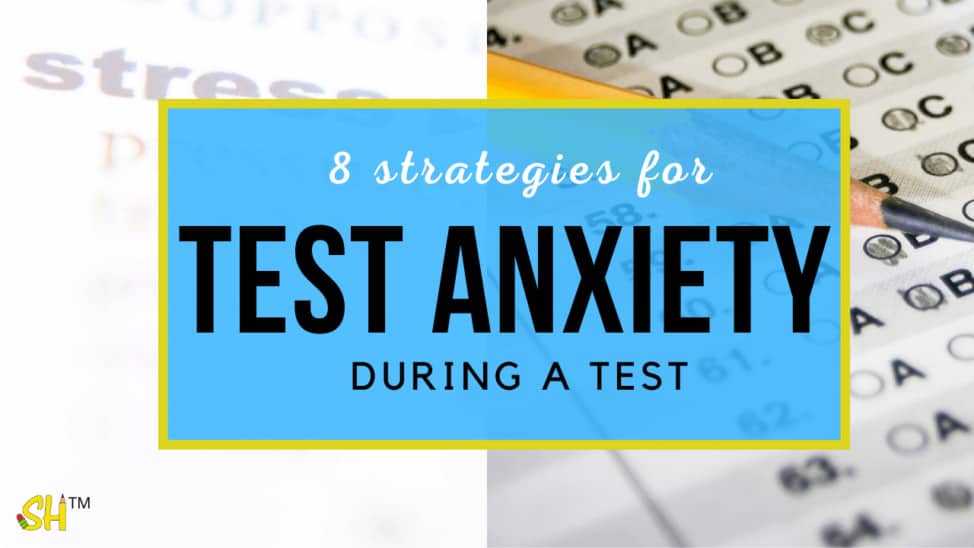
By Katie Azevedo, M.Ed.
Test anxiety is incredibly common. But it can be debilitating when it pops up during an actual test, as it impairs our thinking and impacts our memories – which we clearly need when we are taking an exam.
According to a 2019 article published in Frontiers in Psychology, which references a Klein and Boals study, “As regards to cognitive effects, it appears that stress and anxiety behave in similar ways: it has been shown that under stress, controlled attention resources are reduced as they are allocated to the potential threat” (Lukasik, Karolina M et al.).
I give you the science so that you know the connection between text anxiety and test performance is real.
The best way to prevent test anxiety is to fully prepare for your test. (Here’s how to know if you’re really ready.) This preparation includes testing yourself before you sit down to the real thing. (Here’s how to do that.) This advice may be unpleasant to hear, because it requires actual hard work, but I’m serious when I say the better prepared you are, the less test anxiety you will have.
I go over 7 strategies for avoiding test anxiety in another post here, and I suggest you read that.
This post contains strategies for reducing test anxiety while you are taking the test.
What to do if you experience test anxiety during a test
1. Answer the easy questions first.
This might mean just start by putting your name on the paper. You have to start somewhere.
2. Write down any information you’ve studied that you’re afraid of forgetting.
If you’ve memorized dates or names, or you created a mnemonic device for remembering something, immediately write down all that information on your test (in the margins, on the back, on a spare piece of paper, etc.) so that you don’t have to stress about forgetting it.
3. Use the process of elimination to build momentum.
If multiple-choice questions are giving you anxiety, start by eliminating answers you know are incorrect. You might not know the correct answer right away, but there’s a chance that you can look at the answer choices and find one or two that you know to be wrong. Physically cross these out.
4. Skip and mark any questions that you don’t know or that are triggering your anxiety.
Circle these questions so you know to come back to them. Don’t skip the step of circling them or marking them in some way: taking this step is actually progress, and knowing you’re making progress on a question can reduce our anxiety about it.
5. Ground yourself.
If your test anxiety is affecting your concentration, then use the grounding technique. It takes less than a minute and can change your blood chemistry in just those 60 seconds. To do this, pause your test and survey the room you’re in. Look around and acknowledge each of your five senses. Name something you see, hear, smell, feel and taste. This might sound like a woo-woo strategy but it’s been proven to reduce anxiety in the moment.
6. Use 4-7-8 breathing.
This is a unique breathing pattern that quickly regulates our nervous system (our nervous system controls our stress level). Breathe in through your nose for 4 seconds, hold your breath for 7 seconds, and release slowly through the mouth for 8 seconds. Repeat this a few more times until you feel your heartbeat slow down. Actually do the counting – that’s the thing that makes this strategy work.
7. Start writing what you do know.
If you’re stuck on a question that you don’t initially know the answer to, start thinking about what you do know about the topic. Better yet, write this stuff down in the margins somewhere. When you start recalling information that’s related to the question, that can trigger you to remember the right information. This is a associative thinking. Kind of like a “train of thought” scenario. Kind of like a “one things leads to another” scenario.

8. Let the impossible questions go.
Sometimes a question will appear impossible, but then you work with it and figure it out. Other times, a question will be impossible to answer because you really don’t know the correct information. Let these ones go. (Either take a random guess or leave it blank, depending on the test.) It’s pointless to waste time staring at a question that you can’t answer while you continue to get more anxious about not being able to answer it. Walk away from these questions.
Stress of any kind is no fun. But experiencing test anxiety during a test can impair your ability to think. You’re not doomed, though. There are strategies – like these ones – that can really help.
One last time though, for good measure: The best way to prevent test anxiety is to fully prepare for your test.
Lukasik, Karolina M et al. “The Relationship of Anxiety and Stress With Working Memory Performance in a Large Non-depressed Sample.” Frontiers in psychology vol. 10 4. 23 Jan. 2019, doi:10.3389/fpsyg.2019.00004

